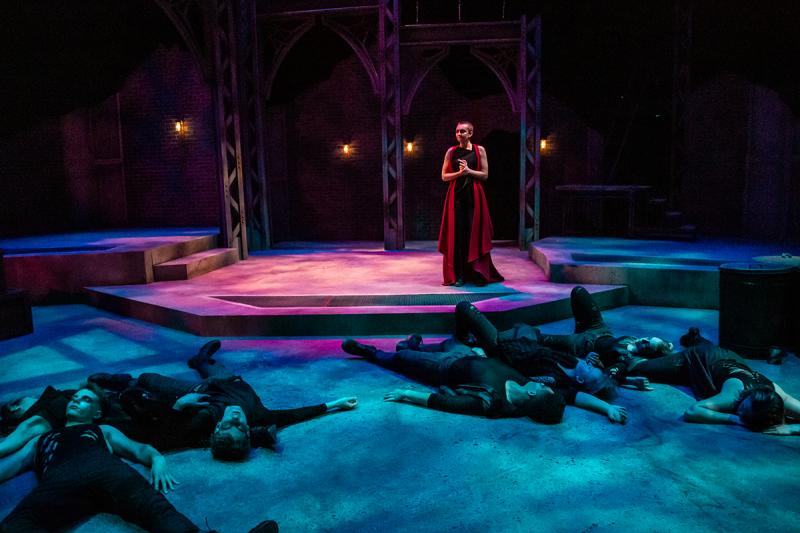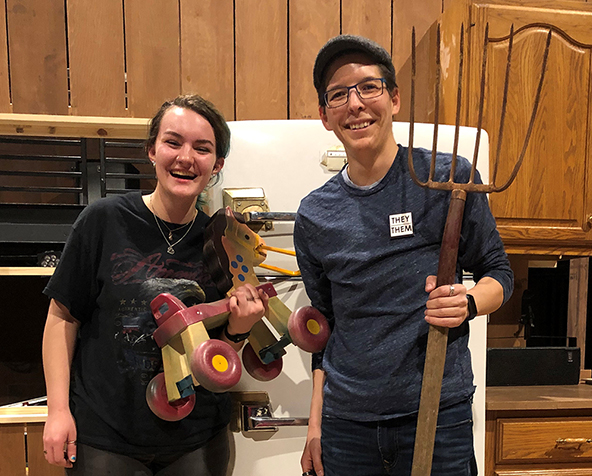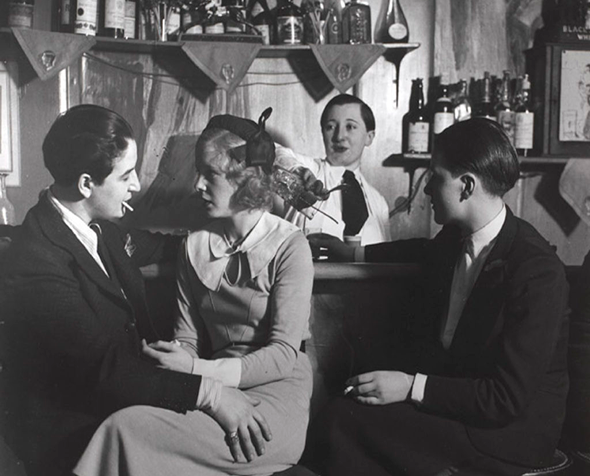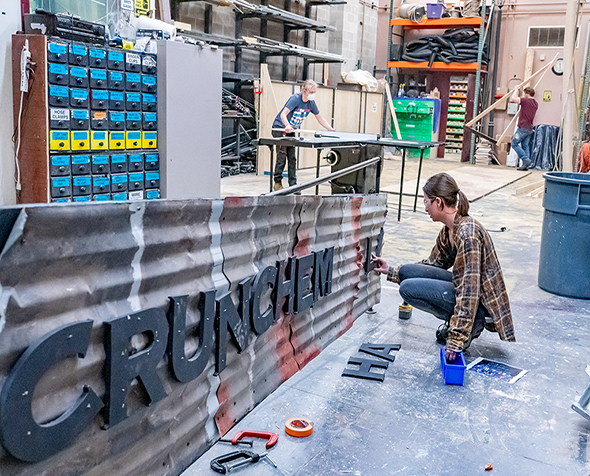Q&A: Lessons From Theatre on Overcoming Zoom Fatigue

From the Department of Theatre's production of "Something Wicked" in 2019
Since Denver’s citywide Stay at Home Public Health Order was issued this spring, many DU faculty, staff and alumni have become a lot more acquainted with Zoom. From teaching classes to holding meetings and events virtually, our former face-to-face interactions are now happening on screen. In just a matter of weeks, it has become clear that virtual meetings require more energy and can quickly lead to Zoom fatigue.
How is our community adapting to prevent Zoom fatigue, while still communicating effectively? Are there lessons can we learn from actors, who often perform for hours on end? To find out, we caught up with Gregory Ungar, associate professor in the Department of Theatre.
Do you have any advice for those who feel drained by the performative aspect of video calls?
I learned this from OTL [Office of Teaching and Learning], who said don’t worry about packing everything into the whole time for class. If it’s a little shorter or a little different, let it happen. If you feel that drain, perhaps take a look at your lesson plan and see if there is anything you can let go. Especially in our first quarter of doing this. I had a voice-acting teacher say to me, “Teach what’s in the room.” Meaning, whatever is going on in that room, right then, deal with that and don’t necessarily push through the agenda. We’re living in this unique circumstance, so flexibility is important. These are not new lessons, but they feel more apt these days.
How do you encourage students to feel comfortable in front of an audience?
To get the jitters out if people are nervous about performing, we have breathing and relaxation exercises. There are voice and movement exercises that folks do for theatre classes as well. However, rather than prioritizing comfort, we often want students to be energized and focused. For performers, warmups can be effective. Personally, I like to move around before I teach or attend a live Zoom class. Any activity that activates the breath is useful. When teaching live, I do a voice warmup that gets my breathing going and energizes me, but also kind of takes the edge off of the nervousness. Also, it helps me to remind myself what I’m doing and why I’m doing it. Teaching and, similarly, performing in plays, is not about me. Both teaching and performing are not about me. They are about the subject, students, the story, the audience.
How can we be using body language to better communicate on video?
I teach most of my classes standing up, and I’m personally more expressive when I’m standing up. I ask my students to be more expressive, so I can see what they’re doing, especially if they have questions. Wave your hands! Say something. When teaching in person, we use many visual and aural cues. Zoom — at least with any class larger than five people — strips out a great deal of those cues. So cuing big helps. I’ve also started to ask students to take off the mute if they’re in an environment where that’s possible. I understand why we use the mute feature, and in some situations it’s necessary, but when I can’t hear their reactions, it seems to me that something is lost.
Do you have any tricks for holding participants’ attention as the host of a virtual meeting or event?
Take breaks. Use breakout rooms, but not for too long. Share a stretch. Play music when people come into the meeting or class and during the breaks. Ask questions. Keeping students engaged is a pre-Zoom thing for faculty. Performance and other studio classes ask for different methods of engagement than, say, a history class.
Also, when I’m talking, I’m looking directly into the camera. I’m not looking at my face or your face, I’m looking right at that green light. I think it’s harder to hear what I'm saying if you don’t see me looking into your eyes. I can’t see your eyes, but I’m looking into them because I’m looking at the camera. Zoom has a “Hide Self View” feature that can be helpful. I encourage the students to turn it on. There are so many distractions, so figuring out what we can clear away is always useful.
Is it possible to minimize interrupting one another, given we’re not as attuned to non-verbal cues on Zoom?
People are interrupting each other, and we’re fumbling through that. I like the real moment of apology and moving on as opposed to controlling it. Let it be a little messy, as long as people don’t feel stepped on and talk over each other. I’m okay with some live mistakes. As theatre students, we spend some time with mistakes and allowing ourselves be vulnerable, not chasing away the discomfort. Just notice that it’s uncomfortable and see what happens next. Discomfort, of the kind we’re talking about, isn’t a bad thing.
Are there any common mistakes people can avoid?
It’s true that when we’re on Zoom meetings and someone’s dog goes by it upstages them, but it’s delightful. So it’s a question of allowing things to fall apart. For example, today during class students were doing a scene, and my internet kicked me right out of Zoom. I just came back on and we all laughed about it. Having some grace, humility and vulnerability about technological mistakes is useful.
Would you recommend an acting class for people learning skills on virtual communication?
Yes. I think an acting class is really useful for anyone, any time, because there’s a lot we do in there. Some of our theatre majors don’t wind up acting professionally, but they end up happy they focused on acting anyway. The skills practiced in acting courses — listening, being present, living truthfully, allowing vulnerability, communicating clearly and honestly, acute sensitivity to the world around you, embodied storytelling, etc. — are invaluable human skills. Actors and non-actors are always thrilled to spend time practicing them. It’s serious work that’s super fun.







